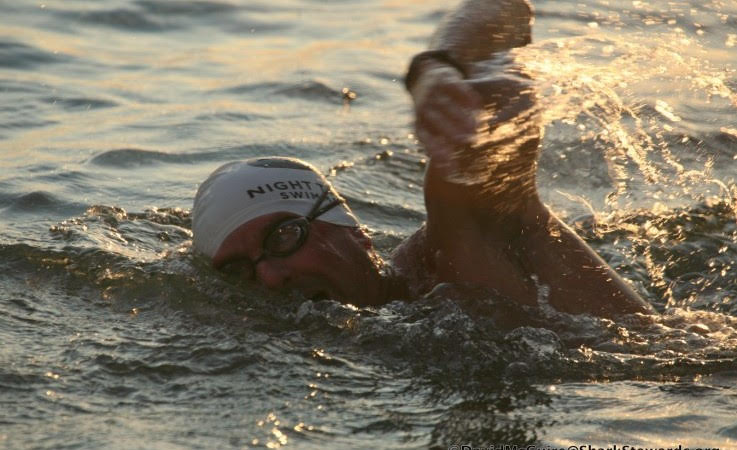48hills is soliciting Letters to the Editor from our readers for publication consideration. Share a story, thought, poem—or simply go off (creatively, please). Due to volume of submissions we regret we cannot respond to or publish all letters. Letters may be edited for length and style. Submit yours here.
February is “polar bear” season in the San Francisco Bay. Each winter between the solstice and the equinox, open-water swimmers with the Dolphin Swimming and Rowing Club take to the bay (sans wetsuit), clicking off miles. Traditionally, the goal is to tick off 160 boxes summing up to 40 miles in the 90 day period. With COVID closing public facilities, gone are the hot showers and saunas that allow some swimmers to achieve hundreds of miles in the 90-day period.
We now change our clothes on the stadium steps above Aquatic Park Cove, and exit the water red and shivering after a half hour. The cold air and water limit swim times, making the miles harder to add up. But three or four days a week I swim, flirting with hypothermia.

After a year of self-isolating, hunkering down and practicing precautions, I caught COVID in Southern California. Driving north, I developed a slight cough as I swam near the Pismo Pier. The next day the ocean surf was too large to swim so I swam in Morro Bay to the sand spit where the sharks are known to play. I traveled north up highway 1 to Big Sur, and the body heat from my session endured. Checking a point that draws big waves, I felt too tired to endure another swim. That evening, parked along the side of the road, I rocked in fever to the sounds of the waves on the beach near Pt. Sur. Two days later I tested positive for COVID.
To breathe is to live. A decade ago while competing in outrigger canoe races, I was adopted by a Hawaiian cultural leader on the Big Island. Uncle John gave me the honor of the honi, a Polynesian ceremonial greeting where two people press their foreheads together and inhale at the same time. The honi represents the exchange of ‘ha’—the breath of life, and spiritual power between two people. Ancient Hawaiians recognized that their breath, the ha, was the key to good health.
We know that COVID-19 attacks the lungs, causing inflammation and potentially long-term damage. Some people who recover from COVID-19 can experience a dry cough or pain when breathing after the illness. This may leave survivors with persistent shortness of breath. For those who had to be placed on a ventilator, more severe long term lung damage may develop.
Athletes have a heightened awareness when it comes to breathing. To live, we must breathe. A large part of my profession is spent underwater. If I cannot dive, or swim, or film, my life changes irreversibly.
But I am fortunate. Two weeks after my infection I stood, ankle deep at Aquatic Park and entered the water. Breathe in, stroke stroke, breathe out, stroke stroke, breathe in. My smell has returned enough to inhale the sweet odors of iodine and salt and the bitter guano of birds on the breakwater. In 51-degree water I swam the buoy line, fifteen hundred strokes, 750 beautiful intakes and exhales, ever grateful for each breath, for the ha of life.
David McGuire is the director of nonprofit Shark Stewards



